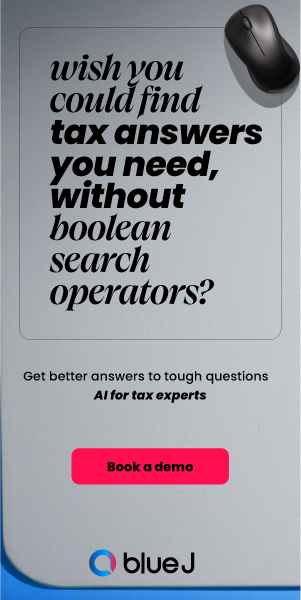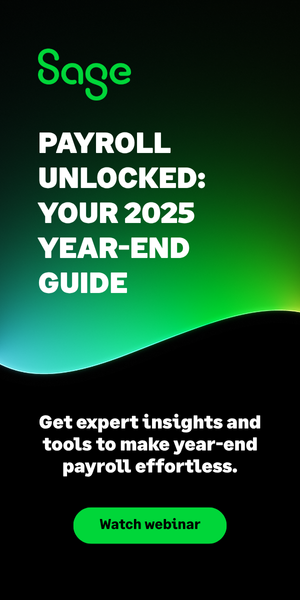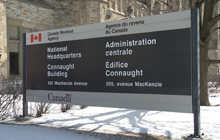Voluntary Disclosure Applications: Canadian Tax Lawyer's Guide

Canadian tax lawyer and accountant David Rotfleisch looks at a recent Federal Court ruling on voluntary disclosure (4053893 Canada Inc.)
Introduction: The CRA's Voluntary Disclosures Program
 |
David J Rotfleisch, CPA, JD is the founding tax lawyer of Taxpage.com and Rotfleisch & Samulovitch P.C., a Toronto-based boutique tax law corporate law firm. |
The Voluntary Disclosures Program (VDP), also known as tax amnesty, is a program offered by the Canada Revenue Agency (CRA) that encourages a taxpayer to voluntarily come forward and disclose any inaccurate or unreported information concerning tax filings. A taxpayer who makes a successful application under the Voluntary Disclosures Program may receive a waiver for penalties and reduced interest on any outstanding tax debt. Whether a disclosure is successful or not depends on a number of strict criteria that the CRA uses to evaluate a disclosure, including whether that disclosure was truly voluntary.
On March 11, 2021, the Federal Court released its decision in 4053893 Canada Inc. v Canada (National Revenue), 2021 FC 218 ("4053893 Canada Inc."), concerning an application for judicial review of a CRA denial of relief under a voluntary-disclosure application. As a consequence of the ruling, 4053893 Canada Inc. (the "Corporation") was conclusively denied interest and penalty relief for years of unfiled tax returns. 4053893 Canada Inc. highlights many of the issues that taxpayers face in making successful voluntary-disclosure applications: the importance of using an experienced Canadian tax lawyer in submitting a tax amnesty application, and in being proactive to resolve any tax filing issues before the CRA begins a tax investigation. If you are concerned about whether you should pursue a voluntary-disclosure application, or if the CRA has taken enforcement action against you for a tax debt, then you should speak with an expert Canadian tax lawyer as soon as possible to evaluate your options.
Facts of the Case and The Voluntariness Rule
Mr. Harris was sole director and employee of the Corporation. Both Mr. Harris and the Corporation were long truant on filing income tax returns; Mr. Harris had failed to file tax returns for 11 years, while the Corporation had failed to file tax returns for 13 years. In 2016, Mr. Harris received a letter requesting that he file his missing income tax return. Shortly thereafter, Mr. Harris spoke with a CRA agent over the phone concerning the notice to file his tax returns. During that phone call, Mr. Harris informed the agent that the Corporation was still active and that he was seeking professional Canadian income tax representation to have its income tax filings prepared. The CRA agent informed Mr. Harris that his responsibility to file income tax returns extended to the Corporation as well. Mr. Harris subsequently filed a voluntary-disclosure application on behalf of the Corporation for over a decade of unfiled returns in 2017.
At the time of the Corporation's voluntary-disclosure application, the Voluntary Disclosures Program was governed by Information Circular IC00-1R5 (IC00-1R5 was replaced with IC-001R6 as of March 1, 2018, which imposes different rules on new voluntary-disclosure applications). Under Paragraph 32 of IC00-1R5, a voluntary-disclosure application would not be considered voluntary by the CRA if:
- Enforcement action had begun against the taxpayer or a related taxpayer; and,
- The enforcement action was likely to uncover the information actually disclosed.
In the context of the Voluntary Disclosures Program, 'enforcement action' explicitly includes a notice to file issued to a taxpayer by the CRA, and communications with the CRA concerning unfiled tax returns. Thus, under the rules governing at the time of the Corporation's voluntary disclosure application, a voluntary-disclosure may still be voluntary where enforcement action was taken, but that enforcement action could not be considered as likely to uncover the disclosed information.
The CRA denied the Corporation's voluntary-disclosure application on grounds that the CRA had begun enforcement action when it contacted Mr. Harris concerning his unfiled personal income tax returns prior to the voluntary-disclosure application being filed in 2017. As a consequence of the phone call, the CRA argued, the revelation concerning the Corporation's activity and failure to file were uncovered. On judicial review filed by the taxpayer's Canadian tax litigation lawyer, the Federal Court quashed the CRA's denial of relief because the CRA did not sufficiently address how the enforcement action was likely to uncover the disclosed information as per Paragraph 32 of IC00-1R5. The voluntary-disclosure application was then returned to the CRA for re-determination, following guidance from the Federal Court
The Federal Court Ruling from 4053893 Canada Inc.
On re-determination, the CRA once again denied relief under the Voluntary Disclosures Program for the Corporation on grounds that it was not a truly voluntary disclosure. The CRA argued that the enforcement action taken against Mr. Harris was likely to reveal the Corporation's non-compliance because the CRA was able to establish a link between Mr. Harris and the Corporation through the phone call held with the CRA in 2016. Further, the CRA was able to directly link Mr. Harris to the Corporation through the employment income and dividend income reported on his income tax return filings. Mr. Harris continued to argue that no enforcement steps had been taken by the CRA against the Corporation, and that the notices to file issued to himself did not prompt the Corporation's filings.
The Federal Court accepted the arguments made by the Canadian tax litigation lawyer on behalf of CRA and found the denial of relief for the Corporation under the Voluntary Disclosures Program reasonable. The Federal Court accepted that the phone call that Mr. Harris held with the CRA in 2016 did in fact constitute enforcement action, and which identified the Corporation as a related taxpayer, and which addressed the obligation of the Corporation to file necessary T2 income tax returns. Unlike the CRA's prior argument, which relied strictly on the connection between two taxpayers to suggest that the information was likely to be uncovered, the CRA set out specific information included as part of Mr. Harris's returns that disclosed information concerning the Corporation. The enforcement action taken by the CRA therefore did result in Mr. Harris filing his returns, which included employment income and dividend income directly related to the Corporation. As a consequence, the information in question was uncovered through enforcement action.
The Consequences of the Federal Court Ruling
The ruling in 4053893 Canada Inc. highlights the importance in being proactive and careful as a taxpayer in disclosing inaccurate or incomplete tax information and to never contact the CRA without the guidance of experienced Canadian tax lawyer. A phone call made to Mr. Harris by the CRA concerning his personal income tax filings completely scuttled the Corporation's voluntary-disclosure application. Had he consulted a knowledgeable Canadian tax lawyer prior to speaking to the CRA, he would have been advised not to speak to the CRA without having a Canadian tax lawyer on the phone call to ensure that he did not provide incriminating information. Any enforcement action taken against a taxpayer or a related taxpayer is a substantial threat to obtaining relief under the Voluntary Disclosures Program. It is therefore important that any taxpayer move forward with a voluntary-disclosure application as soon as possible, to reduce the chances of enforcement action being taken by the CRA and to never act without guidance from a Canadian tax lawyer.
As well, the ruling in 4053893 Canada Inc. emphasizes the difficulties faced by a taxpayer when the CRA at first instance will not accept a voluntary-disclosure application. A successful judicial review of a denial for relief by the CRA is not a guarantee that the taxpayer has 'won' by any means. Federal Court review will often simply result in the matter being referred back to the CRA for re-determination. If the CRA still views the voluntary-disclosure application as deficient, then it will in essence be given a second shot at making an argument to deny relief.
A taxpayer, however, is not entitled to a second shot at making a voluntary-disclosure application. Under the Voluntary Disclosures Program a taxpayer is generally given only one opportunity to make a successful disclosure. It is crucial that a taxpayer ensure that any tax amnesty disclosure is complete, and that it covers all years and reporting periods for which the taxpayer was truant. Any failure to include relevant information under a voluntary-disclosure application will be grounds for the CRA to deny that taxpayer penalty and interest relief. Court review cannot be relied on as a tool to correct any mistakes made in submitting a voluntary-disclosure application.
Pro Tax Tip – Amendments to the Information Circular Have Made CRA Enforcement Actions Even Harder for a Taxpayer to Overcome
As of March 1, 2018, Information Circular IC00-1R5 has been replaced by IC00-1R6. These changes included an amendment to Paragraph 32 concerning the "voluntariness" condition of a successful voluntary-disclosure application. Paragraph 32 no longer explicitly requires that enforcement action taken by the CRA be likely to uncover the information disclosed by the taxpayer.
This amendment implies that a voluntary-disclosure application may now be rejected where tax enforcement action has been taken against a taxpayer regardless of whether that enforcement action was directly related to the subject matter of the disclosure. The core argument available to the Corporation in 4053893 Canada Inc. is therefore no longer available to taxpayers now submitting voluntary-disclosure applications of their own to the CRA. This presents an additional challenge to taxpayers seeking to file a voluntary-disclosure application, and puts additional pressure on taxpayers to ensure that they move expediently with any disclosures required before enforcement action can be taken.
FAQs
What is the Voluntary Disclosures Program (VDP or tax amnesty)?
The Voluntary Disclosures Program is a program offered by the CRA which allows a taxpayer to apply for relief from penalties and interest related to errors or omissions on tax filings before the CRA contacts that taxpayer. A successful application under the Voluntary Disclosures Program cannot eliminate taxes owing but can provide additional benefits such as relief from criminal prosecution for tax evasion.
What was the Outcome from 4053893 Canada Inc. v Canada (National Revenue)?
The Federal Court found that the CRA's denial of relief for the Corporation under the Voluntary Disclosures Program was a reasonable decision by the CRA. The Federal Court agreed that the phone call made to Mr. Harris by the CRA concerning his unfiled income tax returns had revealed his connection to the Corporation. Further, the tax returns that Mr. Harris filed in response to that phone call revealed employment and dividend income linking him to the Corporation. The Federal Court concluded that the CRA was justified in connecting its enforcement action against Mr. Harris to the Corporation on these facts.
If the CRA takes enforcement action against me, can I still file a voluntary-disclosure application?
Under Information Circular IC00-1R5, which came into effect as of March 1, 2018, a disclosure will not be deemed voluntary by the CRA where enforcement action was taken by the CRA (or another similar authority) against a taxpayer or related third-party with respect to information disclosed under that application, or where that taxpayer or third-party had knowledge of planned enforcement action. Enforcement action includes notices to file issued to a taxpayer and direct contact made by an agent of the CRA for tax non-compliance. However, the timing of the enforcement action versus the date of the voluntary disclosure application will be of relevance.
David J Rotfleisch, CPA, JD is the founding tax lawyer of Taxpage.com and Rotfleisch & Samulovitch P.C., a Toronto-based boutique tax law corporate law firm and is a Certified Specialist in Taxation Law who has completed the CICA in-depth tax planning course. He appears regularly in print, radio and TV and blogs extensively.
With over 30 years of experience as both a lawyer and chartered professional accountant, he has helped start-up businesses, cryptocurrency traders, resident and non-resident business owners and corporations with their tax planning, with will and estate planning, voluntary disclosures and tax dispute resolution including tax audit representation and tax litigation.
Visit www.Taxpage.com and email David at david@taxpage.com. This article originally appeared on TaxLawCanada.com. Image: iStock by Getty Images.










(0) Comments